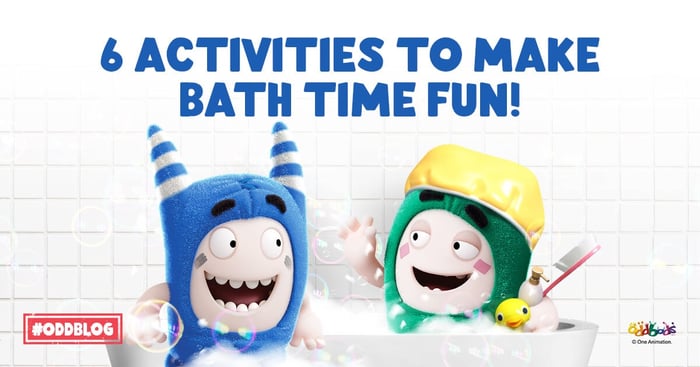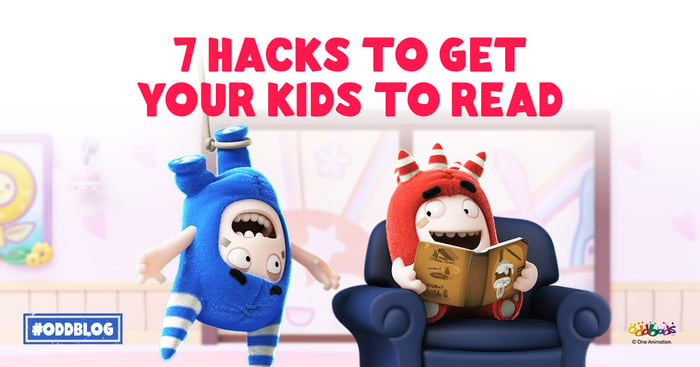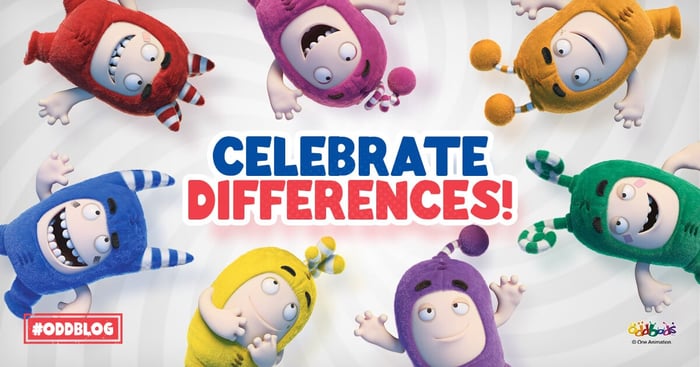Every Easter, families come together to hide and hunt for Easter eggs. Running around the house or garden, decoding clues, playing games, and indulging in chocolate treats, is undoubtedly an activity that your little oddstars are bound to look forward to!
If you’d like to switch it up this year, or if your young ones are growing up and need more of a challenge in their annual hunt, here are five fun and simple ideas to try that are not only entertaining but educational.
1. Choose a Theme for the Hunt
Let your kiddos pick a favourite theme, whether it’s Oddbods or their favourite cartoon series. Then, come up with clues and questions based on their chosen theme, and if they answer them right, they get tips on where the eggs are hidden!
You can also make a “Clue Box” and place those clues and questions inside it to make it even more egg-citing. Your children can take turns drawing lots to answer questions and get hints on where the easter eggs are hidden!
If the theme is “Oddbods Cartoon”, questions you can include are “What is the name of the Oddbod character who loves partying and dancing?” and also “Name me all seven Oddbods characters”.
2. Instead of hunting for eggs, hunt for rewards!
Instead of just hunting for eggs, make it even more exciting for your little ones by letting them track down fun rewards! The rewards can be privileges such as “Watch 30 minutes of an Oddbods Easter episode ”, “Popsicle date with mom”, and even “3-hour indoor playground date”!
Print the rewards out onto slips of paper and place them into plastic Easter eggs before hiding them. The bigger the prize in the egg, the more challenging its location will be.
3. Fill each Easter egg with origami stars
Inject some competition into your annual Easter egg hunt by filling the eggs with origami lucky stars! Put a different number of stars into each egg, and let your children compete to see who can get the most number of stars at the end of the hunt.
You can also add an educational element to the activity by teaching them how to fold the stars and getting them to fill the eggs before you hide them. This gets them more involved and adds fun and ownership, motivating them to participate more actively in the Easter egg hunt.
Here’s a quick and easy tutorial on folding Origami Lucky Stars ; all you’ll need are strips of paper!
4. Have a colour-coded hunt by assigning points to different coloured Easter eggs
Chocolate Easter eggs are best for indoor Easter egg hunts! Photo by RODNAE Productions from Pexels
Instead of plastic Easter eggs, sweeten Easter morning by using chocolate Easter eggs in different colours! To make it more challenging, assign points to each colour. For example, blue-coloured eggs = 10 points, pink-coloured eggs = 5 points, gold-coloured eggs = 2 points. Set a time limit for the hunt, and the winner is the one with the highest number of points!
After finishing the hunt, the little ones can refuel with the chocolates they’ve found. You can also encourage them to share their gains with each other. Not only does this add a twist to your regular Easter egg hunt, but it also fosters a collaborative atmosphere and inculcates the value of sharing. After all, sharing is caring! It’s also a good way to moderate the little ones’ chocolate intake.
Just take note though, if you’re using chocolate eggs, we’d recommend hiding the eggs indoors and away from the sun to prevent the chocolates from melting!
If you’re doing your Easter egg hunt outdoors, you can also use coloured plastic Easter eggs instead. Get your kids involved in painting the eggs with different designs to promote their creativity. Photo by Ksenia Chernaya from Pexels
5. They hide; you find
Reverse roles by letting your children hide the Easter eggs, and you hunt for the eggs instead! You can also combine this with Idea #2 — place slips of paper with little rewards into each egg before hiding the eggs. They will get to enjoy the rewards for the eggs that you’re unable to find.
Besides novelty, reversing roles gives them ownership in the task. Traditional game mechanics usually involve the parents or teachers being in control and setting the rules; by reversing the roles, you empower and inculcate a sense of responsibility.
The Easter holiday is also a fantastic time for the family to bond. After a day of egg hunting, end it off with some screen time with your little ones over our seasonal episode. Who knows, you might even get more exciting ideas for Easter!





